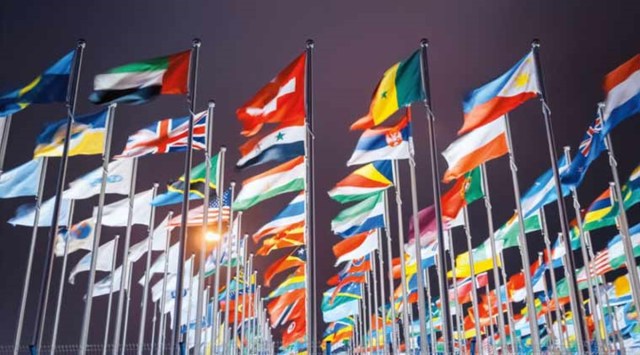
Written by Arvinder Singh Lamba
The war in Ukraine has reset the geopolitics of Europe. It has also set off geostrategic realignments that have divided opinion within the EU and caused concern for NATO members.
The turmoil shines a light on the absence of mechanisms to control conflicts before they escalate. The failure is glaring because the economic hardship caused by the war is evident even in countries that are far from the theatre of the conflict. The differences of opinion within the UN, NATO and EU, and the inability of the US to prevent the conflict seem to have emboldened China.
Chinese President Xi Jinping’s ambition today is not just to take on a much bigger role at the global stage, but to displace the US from its position of dominance and reshape geopolitics across the world. China’s brazen threats to the US, NATO, UK and their allies have added a new dimension to the geopolitics of the Indo-Pacific, South Asia and South China Sea. It has become more bellicose vis-à-vis Taiwan.
While challenging the AUKUS, QUAD and the US-Japan-South Korea trilateral in the Indo-Pacific region, China’s military posturing means hardening its position on the disputes it has with India, Japan and South Korea.
The military buildup along the India-China border, increased activity by PLAN submarines and surveillance vessels in the Indian Ocean, militarising Pakistan, and countering India’s stand on terrorism from Pakistan are key concerns for New Delhi. Renaming cities in Arunachal Pradesh is part of China’s intensified claim on the northeastern state.
Two years ago, the Chinese Communist Party warned Japan of retaliation if the island nation interferes in Taiwan.
In his address to the Indian Council of World Affairs in New Delhi on March 31, Japanese PM Fumio Kishida spoke of a new Japan-led initiative to check China’s growing regional assertiveness and Japan’s deeper concern about the balance of power in Northeast Asia. Japan today has difficult ties with Russia, North Korea, and China. “Ukraine today may be East Asia tomorrow,” he said.
South Korea faces challenges as well. These include North Korea’s nuclear and missile testing/development programmes and China’s “three nos demand” — not to deploy more THAAD units, not to form a missile defence network with the US, and not formally join a three-way military alliance with the US and Japan.
India, Japan and South Korea share a global vision of peace, stability and shared prosperity, based on sustainable development, shared democratic values and commitment to human rights, pluralism, open society, and the rule of law.
Not only are the three countries significant by their individual positioning and strength in respective regions, but their roles in global and regional perspectives also make the three countries suitable partners in geopolitics.
India’s role in the Indo-Pacific and the consolidation of the QUAD make New Delhi a formidable force. In the aftermath of the Ukraine war, India’s significance in the Indo-Pacific seems to have gone up for several countries, groupings and military alliances.
In his speech to mark the Korean Independence Movement Day, President Yoon Suk Yeol called for moving beyond historical disputes and for Japan to be South Korea’s partner in a new coalition that also comprises the US. This landmark policy change opens the doors for a new partnership between India, Japan and South Korea to counter global and regional challenges.
Japan’s New National Security Strategy 2022 also identified China and North Korea as “the greatest strategic challenges” for Tokyo as well as the international community.
India’s existing partnerships with South Korea and Japan can be expanded in view of the changing geopolitical imperatives of the three countries. The three countries now find themselves compelled to assume a balancing role in the aftermath of the Ukraine war. Their status as rising giants of Asia, common interests and foreign policy concerns in a highly unstable international order must push the three countries to strengthen their alliance. This could complement the QUAD, AUKUS and the recent US-Japan–South Korea trilateral.
The India, Japan and South Korea alliance could also take on board developing nations in Asia, Africa and Latin America, and thus strengthen the Global South.
The writer is former Vice Chief of Army staff